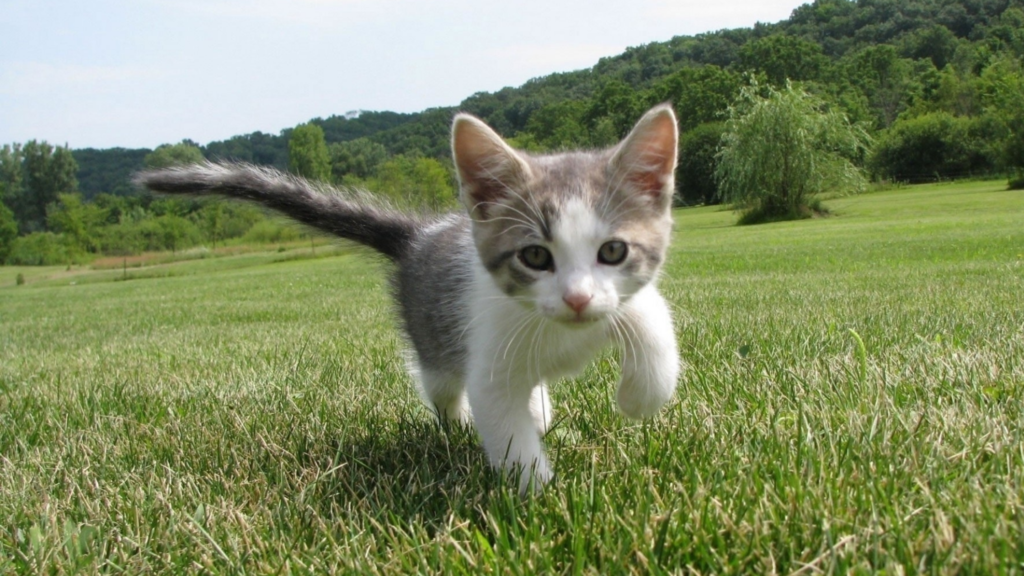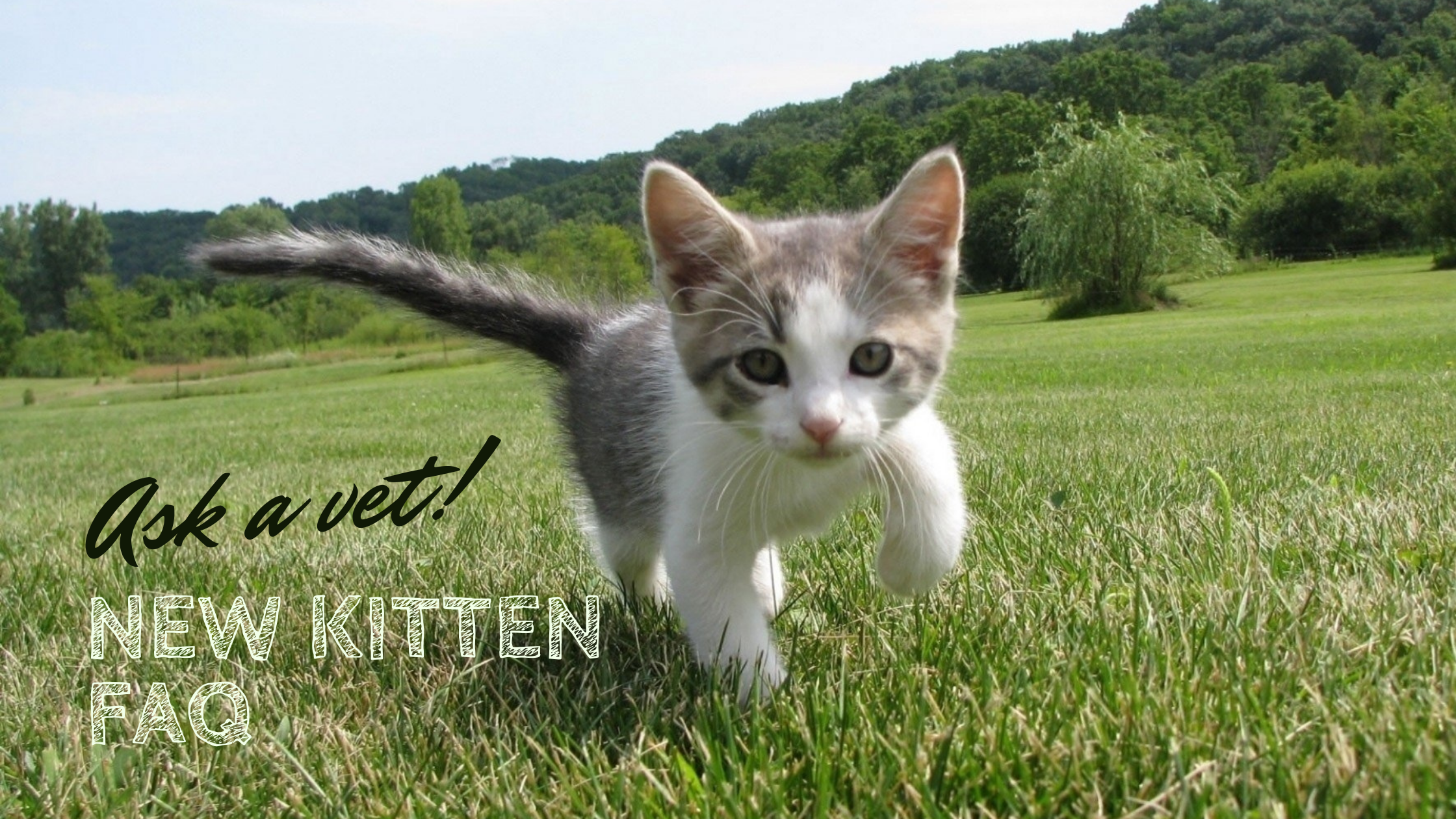If you have a new kitten or are thinking about getting a new kitten – congratulations! You are on your way to a lot of love…and a lot of questions. Dr. Kobi Johnson of BoosterPet answers some frequently asked questions to make this journey as joyful and stress-free as possible. Here are some tips for raising a happy, healthy kitten!
Vaccinations
Which vaccinations do you recommend for kittens?
The cornerstone vaccines for kittens include the Feline Distemper/Upper Respiratory three-way combination vaccine (starting at eight to 12 weeks of age and given again in three to four weeks) and the Rabies vaccine, given at 16 weeks.
A third vaccine, Feline Leukemia, is often reserved for cats that go outside. However, we often recommend this vaccine series for indoor kittens as well. The two-part series given during the kitten stage is intended to protect them if they were to ever escape later in life and encounter an infected cat.
Why do kittens get a series of repeated vaccinations?
Kittens get maternal antibodies from their mothers, and the vaccinations that we administer for modern-day illnesses, such as parvovirus and kennel cough, compete against those maternal antibodies. To maximize immunity against these prevalent diseases, certain vaccines are given repeatedly as the immune system matures.
Food for New Kittens
What (and how much) should I feed my new kitten?
With so many brands and feeding philosophies out there, it is easy to become overwhelmed. We recommend a few tips to ensure you are providing adequate nutrition:
- Feed the correct food for your pet’s life-stage. Young animals should be on a kitten formulation until roughly one year of age.
- Foods differ widely in nutritional density. When deciding how much to feed, start with the manufacturer recommendations provided on the bag or can, and then adjust from there. If your new furry friend is consistently gaining weight while maintaining a lean physique, then they are likely getting the right amount of food. When young, most of an animal’s nutrition goes to developing and strengthening their musculoskeletal system and therefore may appear lean during the first eight to ten months of age. That is ideal! We like lean kittens; there is no benefit later in life to having excess fat during the growing phase.
- If your new pet has a good appetite, is consistently gaining weight, shows minimal gastrointestinal upset (vomiting, diarrhea, gas), has good energy, and is not overly itchy, then they are on an appropriate diet.
How often should I feed my kitten? Is it okay to leave food out and let them graze?
We recommend feeding kittens three times daily until four to six months of age. Then, you can switch to twice daily if they have been gaining and maintaining weight appropriately. You will have had two to three vet visits during this time, and your veterinarian should be tracking their weight and advising if adjustments are needed. Feeding measured amounts at consistent times throughout the day is better than free-feeding, or leaving food out for them to graze on, for a couple of reasons:
- Firstly, many kittens cannot self-regulate their food intake, and are therefore prone to overeating. This can lead to obesity-related health problems for them and is more expensive for you!
- Secondly, providing pre-measured meals at specified times and then monitoring completion of that meal tells you how much your pet is consuming, so that you can adjust when needed.
- Third, it creates routine for them, which our pets crave, and can create moments throughout the day for you to connect and check-in with your pet.
- Fourth, many households contain multiple pets, and it is important your pet gets the food intended for them. Kitten food is high in fat and therefore a delicious, attractive option to your adult pets. We do not want your little one missing out on important nutrients and having to compete for food.
Spay or Neuter
How important is it to spay or neuter my pet?
There are few procedures more beneficial to your pet’s health and well-being than a spay (for females) or neuter (for males). If allowed to stay intact, your pet will face a higher risk of cancer, infection, and behavioral issues. We know anesthesia and surgical recovery seems scary to many; however, medical advancements have minimized anesthetic risks and thousands of these procedures are completed safely in the United States daily. These procedures have the potential to add years to your pet’s life.
At what age should I spay/neuter my pet?
For kittens, aim for procedure completion at five to six months of age.Other Tips and Tricks
Are there any vet-approved toys that you recommend for kittens?
Kittens will benefit from toys that elicit their instinct to hunt and mimic the movements of birds and mice, for example. And, it is never too early to start them down the path to good oral health using dental treats which will help with teething during the early months.What are the advantages of keeping my cat indoors?
Cats are natural hunters and can roam for long distances when given the opportunity. Unfortunately, among cats that are allowed outside, the veterinary industry sees a high incidence of disease transmission, hit-by-car incidents, fight wounds, parasitic infections, and lost pets. The instinct to get out and explore the world can be strong but poses a large risk to your cat’s health and longevity (not to mention often results in larger vet bills!)
There are plenty of ways to spark your cat’s curiosity indoors, including simulated food “hunts” staged around the house, high surfaces where they can watch over their kingdom and toys that promote them to stalk or chase. Products such as catnip or pheromone diffusers are also great ways to provide your kitten with mood support, right from the start!
What is the best way to introduce a kitten to a household with adult cats?
Admittedly, this can be tricky, and the process can be unpredictable. The best chance of success it to introduce new housemates slowly, starting with just their scent. Over the course of a few days, use something that smells like your kitten and incorporate into your existing pet’s bedding and play areas. Keep the kitten and existing cat separate during this time, and then introduce slowly, at first through barriers before allowing them to come face-to-face. If you see signs of aggression or stress (hissing, swatting, vocalization, attacking, excessive hiding or grooming and urinating outside the litterbox), go back a few steps and try again.
Enriching your existing pet’s environment will help, such as adding toys, additional places to sleep or hide, and a high surface for them to keep a watchful eye can help relieve a lot of stress. Pheromone diffusers prior to their introduction will also provide mood support. It can take time and unfortunately not all cats are meant to be housemates. Planning and incorporating these tips will go a long way toward achieving a peaceful multi-cat household!
How important is parasite prevention for my kitten?

We think prevention is very important! Kittens have immature immune systems and are therefore vulnerable to parasitic infections. A comprehensive monthly prevention can protect against fleas, Heartworm, ticks, intestinal worms, and skin and ear mites. We recommend all kittens start their parasite control at eight weeks of age and continue year-round here in the Pacific Northwest, which has a temperate climate favorable to parasite populations.
Many parasites are transferrable to humans, especially children, and therefore monthly parasite prevention plays a role in the health of the entire family. Prevention is key and is so much easier than treating a parasitic infection.
We hope these tips for raising a happy, healthy kitten have been helpful! If you still have questions about care for your new kitten or want to have your new kitten seen by a BoosterPet Vet, check the schedule here and come on by – no appointment necessary! BoosterPet’s team of veterinarians and technicians visit several Pet Pros every month with mobile wellness clinics and they would love to meet you and your new pal. And, if you have questions on healthy cat foods, toys or other essentials, stop by your neighborhood Pet Pros. We’d love to help!

